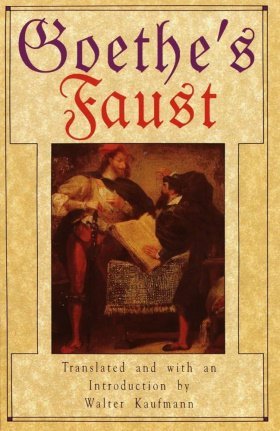Have at him there!
Valentin. [falls]
O woe!
Mephistopheles.
Now is the lubber tamed!
But let’s be gone! why stand you gaping there?
They’ll raise a cry of murder! I can play
A game with the policeman, any day;
But blood spilt is a dangerous affair.
[Exeunt Mephistopheles and Faust.
Martha. [at the window]
Ho! murder, ho!
Margaret. [at the window]
A light! a light!
Martha. [as above]
They bawl, they brawl, they strike, they fight.
The People.
And here lies one already dead!
Martha. [appearing below]
Where are the murderers? are they fled?
Margaret. [below]
Who’s this lies here?
The People.
Thy mother’s son.
Margaret.
Almighty God! my brother dead!
Valentin.
I die! I die!—’tis quickly said,
And yet more quickly done.
Why stand you, women, and weep and wail?
Draw near, and listen to my tale!
[They all come round him.]
My Margaret, mark me, you are young,
And in sense not overstrong;
You manage matters ill.
I tell thee in thine ear, that thou
Art, once for all, a strumpet,—now
Mayst go and take thy fill.
Margaret.
My brother! God! what do you mean?

























